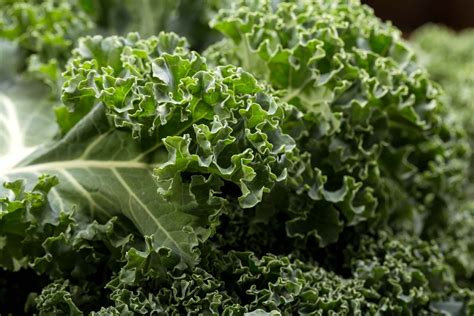Kale - Nutritional Benefits and Cooking Ideas
Kale FAQ
Is Kale healthy?
Kale is a nutritious food rich in antioxidants, vitamin C, vitamin K, and beta-carotene. It also contains nutrients that can support eye health, weight management, heart health, and more. Loaded with important micronutrients and antioxidants, kale is one of the most nutritious leafy greens available.
Why is Kale so popular?
Although kale has early roots in Greek and Roman culture, it remained a relatively minor commercial crop in the U.S. until recent years. This leafy green reached celebrity status around 2012, appearing on menus of Michelin star restaurants and becoming the choice ingredient of millennial food bloggers.
Is Kale a superfood?
It belongs to the Brassicaceae (mustard) family, which also includes bok choy, cabbage, cauliflower, watercress, radishes, broccoli, arugula, and Brussels sprouts. Kale is packed with vitamins, minerals, and plant-based compounds. Due to its impressive nutrition profile, it is often referred to as a superfood .
Is Kale a cabbage?
Kale ( / keɪl / ), also called leaf cabbage, belongs to a group of cabbage ( Brassica oleracea) cultivars primarily grown for their edible leaves. It has also been used as an ornamental plant . Kale plants have green or purple leaves, and the central leaves do not form a head (as with headed cabbage ). [citation needed]
Kale References
If you want to know more about Kale, consider exploring links below:
What Is Kale
- https://www.medicalnewstoday.com/articles/270435
- https://www.healthline.com/nutrition/10-proven-benefits-of-kale
- https://www.verywellhealth.com/kale-8411423
- https://en.wikipedia.org/wiki/Kale
- https://www.emedihealth.com/nutrition/kale-health-benefits
- https://www.verywellfit.com/kale-nutrition-facts-calories-and-health-benefits-4117546
- https://www.hsph.harvard.edu/nutritionsource/food-features/kale/
- https://www.mayoclinichealthsystem.org/hometown-health/speaking-of-health/the-many-types-and-health-benefits-of-kale
- https://www.everydayhealth.com/diet-nutrition/diet/kale-nutrition-health-benefits-types-how-cook-more/
- https://www.webmd.com/diet/health-benefits-kale
Kale Information
Explore Related Topics
Antioxidant-Rich Superfoods: A New Hope for Asthma Patients?
Investigating whether incorporating antioxidant-rich superfoods into one’s diet can provide new hope for those suffering from asthma.
